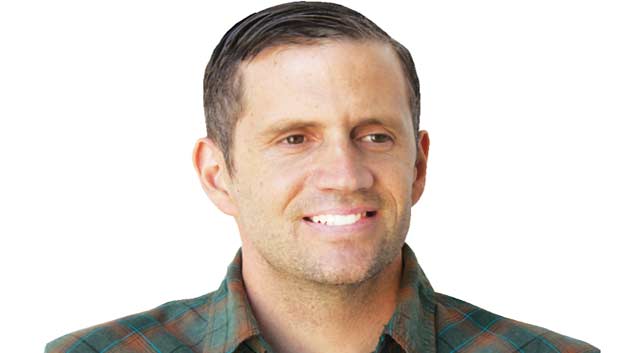DoubleDutch
CEO and Co-Founder
Hometown: Philadelphia
College: Georgetown University, Washington, D.C.; Emory University, Atlanta
“Events are the ultimate petri dish for mobile, social and cloud converging on an enormous industry.”
When DoubleDutch CEO Lawrence Coburn walks into his San Francisco Mission District office, he feels “energized.”
“The buzz is palpable,” says Coburn, co-founder of the now 200-employee company. “It’s crowded. Often there will be phone calls and meetings taking place on the floor or in the halls. There are ideas bouncing everywhere, demos happening, customer calls, engineering brainstorms and more.”
Coburn got into the meetings and events industry not because he’s an event planner, but because he and his co-founder, Pankaj Prasad, are technologists. They were looking for a new startup idea that would allow them to combine mobile technologies such as phones and tablets with social aspects of the Internet (Facebook and Twitter)—with the power of shared storage facilities (the cloud). Event technologies “ticked all of our boxes,” Coburn says.
“We quickly realized that the events industry was ripe for disruption, with live events remaining largely unchanged for decades,” he says.
In the parlance of tech, disruption is a good thing. It means the industry is ready and needs to be shaken up.
And that’s exactly what Coburn has tried to do with DoubleDutch, which creates mobile applications for events and then analyzes the data they deliver.
“Events are the ultimate petri dish for mobile, social and cloud converging on an enormous industry,” Coburn says
What makes DoubleDutch, named after an “old school” hip-hop bar in the San Francisco Mission District, different from other event application companies is the people who run it and their attitudes, Coburn says.
“We are technologists first, event professionals second,” he says. “Our vision has always been to build the best mobile, social networking and community tool in the market.”
Take the name, DoubleDutch.
“The name stuck, as we realized that our early adopter customers seemed to like working with a vendor that didn’t sound anything like any other enterprise software vendor out there,” he says. “It also fit our consumerized, playful approach toward building software. We do not follow conventional enterprise rules, and neither does our name.”
Also, DoubleDutch doesn’t simply digitize paper guides as some tech companies do. DoubleDutch creates the applications and extracts live data to let companies know how their events are performing in real time.
“We are adding a digital layer to the event experience,” he says. “This enables us to process vast amounts of mobile app engagement data into unique, actionable insights to better serve customers, partners and other event stakeholders.”
Digital apps also provide what the company calls “assisted serendipity.” In other words, people can use the app to find each other at oftencrowded conferences.
The apps not only allow people to run better events by analyzing “every tap and beacon interaction,” but they also allow the creation of new revenue streams by connecting buyers and sellers. That “increases ROI for every exhibitor and revenue potential for planners,” Coburn says.
Whether planners use DoubleDutch, a competitor or create the app themselves, one thing is clear: Meetings applications are here to stay.
“The physical world is beginning to digitize,” Coburn says.
“There is no better example of this trend in the workplace than the world of professional events,” he says. “For the first time in history, transactions that happen on the show floor—people meeting each other, people learning at sessions, people seeing product demos—can be captured, measured and optimized.
“And virtually every attendee is now carrying a powerful, handheld computer in their pocket and purse. This is a major leap forward, and offers a tremendous incentive for planners and organizers to find a way to engage attendees on these devices.”
Even Coburn feels that technology will never fully replace human interaction. Instead, technology will continue to “leverage the human interaction of a physical world encounter.”
When Coburn isn’t in the office or hanging out with his wife and daughter, who live in San Francisco, he’s often playing basketball. The 45-year-old qualified for the Red Bull, King of the Rock, national one-on-one championship in 2010, “a point he brings up frequently,” according to his official bio.




